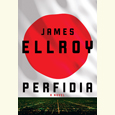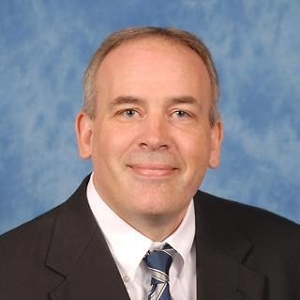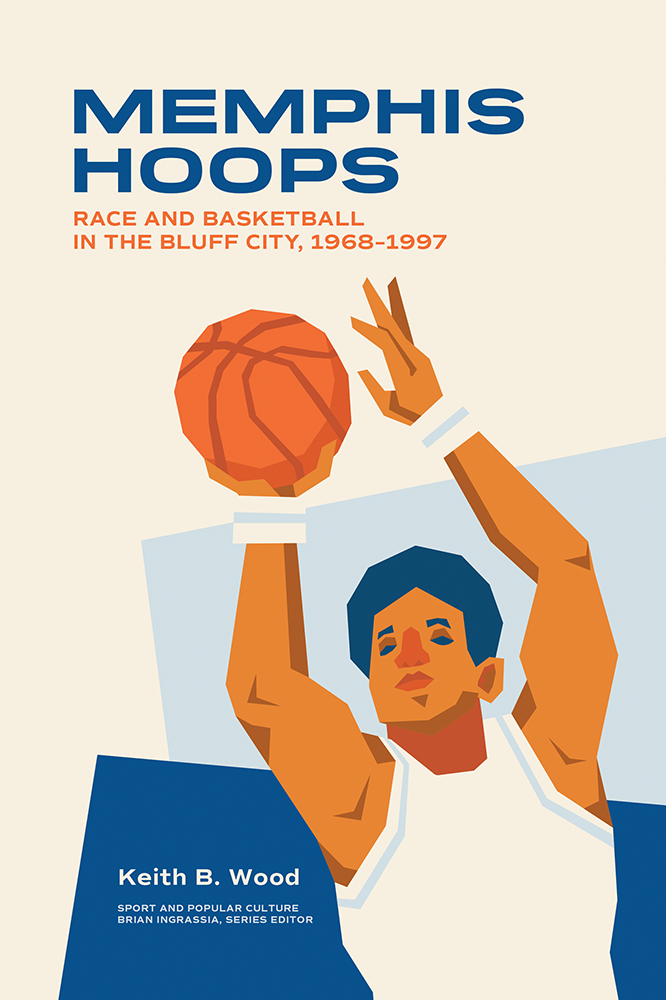Wordsworth’s Heir
Billy Collins, former poet laureate, talks with Chapter 16 about why we’re all born for poetry—and how school kills it for kids
There may be no such thing anymore as a famous poet, but Billy Collins comes very close. He is a frequent guest on National Public Radio shows like A Prairie Home Companion and Fresh Air, his readings pack even halls that seat two thousand people or more, and his books sell by the tens of thousands in a publishing climate where a new book of poems typically sells a few hundred copies.
Collins served as poet laureate of the U.S. in the immediate aftermath of the 9/11 terrorist attacks, a time when, thanks to his guidance, many major media outlets quoted poetry more often than at any time since the nineteenth century. During his two-year stint as poet laureate, he worked tirelessly to bring home the point that poetry is not an effete art that exists as an endangered species in the protected cage of university English departments. Collins’s own work is almost universally referred to as “accessible” (though he prefers the word “hospitable”), and the major effort of his laureate years, Poetry 180, was an initiative designed to reintroduce high-school students to the pleasures of poetry, a plan he hoped to accomplish by divorcing poems from the anxiety-inducing act of enforced interpretation.
Billy Collins recently spoke with Chapter 16 by phone from his home in New York.
Chapter 16: You were named poet laureate shortly before 9/11, and, if I remember right, you were suddenly getting calls from the media—like the NewsHour and Time and Newsweek—because they wanted you to recommend some poems they could print or read on the air that would speak to the experience of the attacks. Am I remembering this accurately?
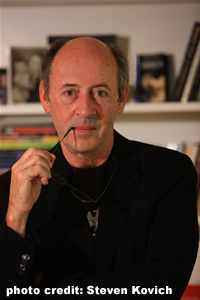 Collins: Yes. The timing was either perfect or awful, depending on your point of view. But I was appointed poet laureate just a few months before September 11. I was pretty much swamped with not just interview requests but, as you said, recommendations—like, “What should we be reading now?”
Collins: Yes. The timing was either perfect or awful, depending on your point of view. But I was appointed poet laureate just a few months before September 11. I was pretty much swamped with not just interview requests but, as you said, recommendations—like, “What should we be reading now?”
It was very revealing, and yet not unfamiliar, that people would turn to poetry and not, for example, movies or the ballet when in times of national uncertainty. I guess that was the mood of the country—it was the mood of intense uncertainty—and poetry has always had not just a consoling aspect to it but a steadying influence on people. I think the reason poetry can be consoling is that it reminds us that we’re not alone, that whatever emotion we’re experiencing is really nothing new. It might feel overwhelming to us, but [then we read] a poem written in 1767, and this person seems to be going through a very similar crisis. So by bringing us into this kind of community of historical suffering, poetry reminds us that we’re not alone.
But also poetry has formal properties—rhyme and meter, but there are others that are substitutes for those two—and [those] formal properties have a kind of steadying sound to them. [Unlike] a short story, a poem has rhythmic comfort. It’s short, sometimes memorizable, and you can carry it in your purse or your pocket; it’s transferable. So I’m not surprised that people wanted to read the poems.
And there’s one thing I’ll just add to that. One of the reactions to 9/11 was people saying, “We were going to get married a year and a half from now but we decided to move it up to next week.” [Or] “We were going to take our family to Paris in a year, [but] we’re going to do stuff now because we are reminded that life is not a guarantee.” This is the oldest message in poetry. It’s called carpe diem. You can’t get out of high school without seeing it on a blackboard at least once. And anyone who has the slightest interest in poetry knows that that is the crucial message of poetry. Of course you’re supposed to live for the moment. Of course you’re supposed to live engaged with life more immediately because you are reminded here of your mortality. Poets did not need a terrorist attack to remind them of their mortality.
“… You’re supposed to live engaged with life more immediately because you are reminded here of your mortality. Poets did not need a terrorist attack to remind them of their mortality.”
Chapter 16: We don’t have in this country the expectation, as the British have, that our poets laureate should write occasional verse, but you wrote a 9/11 poem yourself—“The Names”—and delivered it to a rare joint session of Congress. Do you remember why you did?
Collins: I remember clearly. If the British poet laureate is a member of the royal household, then the American poet laureate is really an employee of the Library of Congress. And we are not obliged in any way to write on the events of national importance, but I was responding to a pressure that was put on me by Congress—and by Congress I mean probably the public relations office of Congress—because they called me and asked me to do that. I initially told them I didn’t think I’d be able to because that’s not the kind of poetry I write. But eventually I realized two things: I could use the form of the elegy, and just write about the victims of 9/11, the fatalities. And also I could use the alphabet and kind of step, as from one stone to the other, through the alphabet. Reciting a name for each letter, and the alphabet would steady me.
Chapter 16: As poet laureate, you launched the Poetry 180 initiative, in which you urged schoolteachers to read the poems to students without discussing them or assigning work related to the readings. I was thinking about that when my fourteen-year-old was at the table last night griping about poetry. This is a child we thought was almost a poetic savant—always making up rhymes and playing with language, like singing “Swing Low Sweet Cherry Pie” to the tune of “Swing Low, Sweet Chariot.” Any theories about what happened to him?
Collins: How old was he when he was changing “chariot” to “cherry pie”?
Chapter 16: Four, probably.
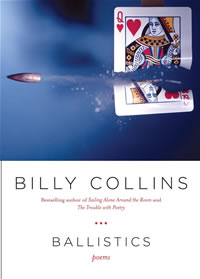 Collins: Well, he seems very typical. He seems to [represent] a pattern of how people’s sense of poetry develops and then is ruined. I think we’re all natural poets. Children, as you know, love that kind of stuff. They love chariot and cherry pie. It’s really part of rhyming. Those words don’t rhyme exactly, but they’re cousin words—they sound similar, right? And to substitute words that sound similar and usurp the whole meaning of the verse and take it from its religious [meaning] to nonsense is such a delight because it appeals to the subversive sense of children.
Collins: Well, he seems very typical. He seems to [represent] a pattern of how people’s sense of poetry develops and then is ruined. I think we’re all natural poets. Children, as you know, love that kind of stuff. They love chariot and cherry pie. It’s really part of rhyming. Those words don’t rhyme exactly, but they’re cousin words—they sound similar, right? And to substitute words that sound similar and usurp the whole meaning of the verse and take it from its religious [meaning] to nonsense is such a delight because it appeals to the subversive sense of children.
And the other basic pleasure is just rhyme. Children are delighted and astounded to discover at some point in their life that the thing that they use to eat their cereal with sounds almost exactly like that big white thing in the sky at night—moon-spoon. It feels good on their lips and it connects these two wildly different things, and that’s one of the very primal pleasures of poetry. But there are others, too. So, what’s your son’s name?
Chapter 16: That son’s name is Henry.
Collins: I have such respect for the teachers, who are caught between students and parents and administrators and test preparation. But what happens is, the teaching of poetry seems to be weighted very heavily on the side of interpretation. So it might be [that] he just heard this poem by Edgar Allen Poe, and [the teacher says], “Henry, what do you think that means?” Or, “What do think that stands for?” It turns into a kind of interrogation, and it associates poetry with anxiety.
And teachers don’t mean to do it, but there’s only one dominant way to teach, and that’s the school of interpretation. You can’t very well, at the age of fourteen, sit around the classroom and talk about cherry pie—it isn’t going to go anywhere as a serious subject, and it’s not preparing children for the explication that might come up on the test. So boys and girls often have the natural pleasures of poetry beaten out of them by the time they get out of high school. Two reasons why: forceful emphasis on interpretation, and using poems that are very dated—poems that were written a hundred years ago.
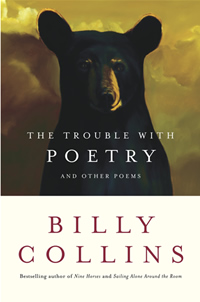 Poetry 180 was meant to alleviate those two things—first, by offering students poems that were super-contemporary so they could hear the voices of contemporary sounds. And, secondly, the warning was, “Do not interpret these poems; just let the students hear them.” No quiz; no midterm; just hear the poem. [I was] hoping—and, really, confidently believing—that no matter how recalcitrant the student was, or [how] resistant to poetry, that one of those poems would probably stick because they’re funny and they’re clever and they can pretty much be gotten in one hearing. Obviously I’m not going to go in there and change the teaching of poetry, but the hope was that I would present an alternative way to present poetry. And I’ve got to tell you quite modestly, if I had a nickel for every high-school teacher who came up and thanked me after a reading, I would have a lot of nickels. It seems that the program and the subsequent anthologies really work in the practical world.
Poetry 180 was meant to alleviate those two things—first, by offering students poems that were super-contemporary so they could hear the voices of contemporary sounds. And, secondly, the warning was, “Do not interpret these poems; just let the students hear them.” No quiz; no midterm; just hear the poem. [I was] hoping—and, really, confidently believing—that no matter how recalcitrant the student was, or [how] resistant to poetry, that one of those poems would probably stick because they’re funny and they’re clever and they can pretty much be gotten in one hearing. Obviously I’m not going to go in there and change the teaching of poetry, but the hope was that I would present an alternative way to present poetry. And I’ve got to tell you quite modestly, if I had a nickel for every high-school teacher who came up and thanked me after a reading, I would have a lot of nickels. It seems that the program and the subsequent anthologies really work in the practical world.
Chapter 16: You recently told an audience at Cornell, “The trouble with poetry is its availability: you can pick up a 29-cent pen and express yourself. Self-expression is overrated. If I were Emperor of Poetry, I would make everyone learn to play the trumpet before they could write poetry, just to make it difficult.” It’s a little surprising to hear that a writer whose work is routinely described as “accessible” longs for a way to make writing poems more difficult.
Collins: These are two very different uses of “accessibility.” What I’m accused of by critics is that my poems are accessible—that anyone can read them with a certain degree of comprehension. I’m not trying to make my poems inconvenient to read. You can get into them and understand them pretty quickly.
What I meant in the comment at Cornell was the means of writing poetry are too accessible. In other words, if you were to play the cello, you’d have to obviously go to school and buy a cello and practice. Even oil painting or ballet requires lessons; you wouldn’t just get up there and start jumping around in a tutu. And you wouldn’t just pick up the trumpet and just blare into it.
“The training in poetry is reading. Reading, reading, reading. Reading from Chaucer on. Reading the Spanish poets. Reading John Donne. Reading, reading, reading. Memorizing ten Emily Dickinson poems. That’s the training.”
But [with] poetry, people think you just pick up a pen and start writing down how sad you are in the middle of the night, and add some autumn leaves, and you’ve got a poem. The training in poetry—the training for a musical instrument—is hours and hours of practice. And Malcolm Gladwell recently said [in his book, Outliers, that] to be really, really good at something, let’s say the violin, it requires 10,000 hours minimum—ten thousand hours! When I read that book of Gladwell’s, I thought, “Yeah, I’m of a certain age, and I’ve easily spent 10,000 hours reading, writing, and teaching poetry.” The training in poetry is reading. Reading, reading, reading. Reading from Chaucer on. Reading the Spanish poets. Reading John Donne. Reading, reading, reading. Memorizing ten Emily Dickinson poems. That’s the training.
If you pay ten dollars to go to a piano concert or a string quartet, and you sat down on the twelfth row, and they started playing, and after a few seconds it was very clear that they were very, very bad—just terrible: wrong notes, confused—you would walk out and get your money back. However, most of us will sit in a terrible poetry reading and not understand a word that’s said, and just take it. I don’t know why we do that. That’s what I meant. Those are two very different deployments of the word “accessible.”
Chapter 16: I found an old interview you did with The New York Times, where you said, ”As I’m writing, I’m always reader conscious. I have one reader in mind, someone who is in the room with me, and who I’m talking to, and I want to make sure I don’t talk too fast, or too glibly. Usually I try to create a hospitable tone at the beginning of a poem. Stepping from the title to the first lines is like stepping into a canoe. A lot of things can go wrong.” Can you describe the reader you’re imagining as you write?
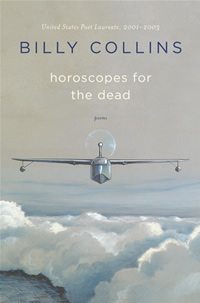 Collins: I can’t really pretend to be someone else. If I could, if I had that capacity, I’d probably write fiction because that involves a degree of empathy where you can imagine yourself to be someone else. But I lack that form of empathy, and the only person I really think I understand is myself. So my reader is probably me. But as I’m writing, I’m switching from writer to reader, writer-reader, writer-reader. I keep going back and forth. I’m really checking for comprehensibility.
Collins: I can’t really pretend to be someone else. If I could, if I had that capacity, I’d probably write fiction because that involves a degree of empathy where you can imagine yourself to be someone else. But I lack that form of empathy, and the only person I really think I understand is myself. So my reader is probably me. But as I’m writing, I’m switching from writer to reader, writer-reader, writer-reader. I keep going back and forth. I’m really checking for comprehensibility.
And then, at some point, I’m asking the reader for more—not making it easy for the reader to follow. My sense of my own poetry—which doesn’t apply to all poetry—[is that I] start very clearly and end up in some kind of fog, some kind of hypothetical Alice in Wonderland. They start very simply—I’m looking out the window or taking the dog for a walk—and they end up in some conditional make-believe area. The end of the poem would be inaccessible if it were not for the beginning of the poem.
Chapter 16: Critics, too, have noted your tendency to begin by describing something very ordinary, and in very conversational language, only to take a turn for the distinctly original and unexpected at the end. When you sit down to write a poem, do you have some idea where it’s going from the beginning?
Collins: Yeah, well almost never. You can look ahead just a little bit, just enough to kind of keep going. The metaphor of driving at night might apply: your headlights throw light ahead of you to keep driving but they don’t show you much more than that. I would say that the best poems [I’ve written] are the ones where I’m really surprised at the ending. I don’t know how I got there, but I am really surprised and delighted. It’s almost as if the ending of the poem is not just a conclusion, but it’s a new discovery of some revelation that is only possible because of the words above it. It’s like the poem is the only path to get to this place. The one way to get there.
In some cases I’m not going anywhere, and then I stop writing.
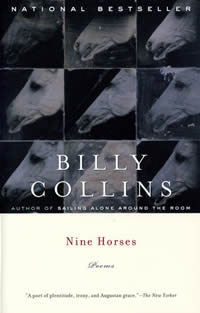 Chapter 16: Entertainment Weekly once called you “the best buggy-whip maker of the 21st century.” Any response?
Chapter 16: Entertainment Weekly once called you “the best buggy-whip maker of the 21st century.” Any response?
Collins: What does it mean, exactly?
Chapter 16: I think it means that Entertainment Weekly believes you’re really good at an art that’s now completely irrelevant.
Collins: That’s probably right. It doesn’t mean that I’m old-fashioned; it just means that people don’t use buggy whips anymore.
We talked about Henry, whose very basic delight in word play—with chariot and cherry pie—went through a kind of ruination. At some point it advances from being a simple pleasure—like the pleasure of a bowl of pasta or something that delivers the pleasure immediately—to a pleasure that requires study. That requires reading a lot of poetry.
Most people don’t have that devotion. It’s a minority sport. It’s not something that everybody plays. And the irony is that poetry really tries to talk to everybody because poetry does deal with these very basic human emotions, and because poetry values subjectivity. It lights up inner parts of you—your appreciation of nature, your conscience, your desire for love. All these areas of your interior are being sparked by a poem, and so one might say, “Why doesn’t everybody read it? It sounds pretty good.” But most people don’t. It doesn’t play any part in most people’s lives. All you have to do is say to somebody next to you on an airplane that you’re a poet. You get some pretty strange reactions.
Chapter 16: And yet, even before you were appointed poet laureate, The New York Times called you “the most popular poet in America.”
Collins: I don’t know why I became popular. To tell you the truth, it’s basically NPR.
Chapter 16: Your buddy Garrison Keillor?
“I would say that the best poems [I’ve written] are the ones where I’m really surprised at the ending. … It’s almost as if the ending of the poem is not just a conclusion, but it’s a new discovery of some revelation that is only possible because of the words above it. It’s like the poem is the only path to get to this place.”
Collins: And my buddy Terry Gross. They had a lot to do with the audience for my work. It’s just an incredibly powerful medium, radio. And perfectly suited to poetry. Now instead of reading to twenty-five people at the local women’s club, you’re reading to three million people when you’re reading on A Prairie Home Companion or Fresh Air. And very few poets get that chance.
Chapter 16: Readers coming to your work for the first time—through radio, or even at your public appearance in Nashville—might be surprised to encounter so much wit, and even outright humor, in your poems. Do you ever find that people in your audiences, especially when you read to students, are shy about laughing at the funny parts?
Collins: They are at first, but they’re relieved to be able to. And then for some people it’s like giggling in church. But I think it usually comes as a relief to people. And of course the other audience—the people who know my work and who read other poets—know that humor has reclaimed its place in poetry. There’s an anthology that just came out this year called Seriously Funny, and it’s a collection of maybe forty poets who write humorous poems that are not silly. They use humor to get into serious stuff.
Chapter 16: You mentioned that the initial experience of poetry is pleasure and that to get beyond that experience requires some study and some effort. Didn’t Wordsworth say that the point of poetry is pleasure? What would you say is the point of poetry?
Collins: It can’t really exist as a communicative medium without pleasure. I wrote a dissertation on Wordsworth, so I have an unfair advantage here: Wordsworth mentions pleasure over fifty times. In his essay, “A Preface to Lyrical Ballads,” he just keeps chiming this note of giving pleasure. Indeed, that’s why I write it, and that’s why I read it.
I myself wrote an article called “Poetry, Pleasure, and the Hedonist Reader.” I don’t read to be edified, to increase the capacity of my soul, although if those things happen as byproducts, that’s great. I read for pleasure, verbal pleasure, and the kind of pleasure that you get from “Swing Low, Sweet Cherry Pie.” I find that very pleasurable. I’ll probably be laughing about it for days. Either you think that’s really funny or you don’t. And if you don’t, probably something that takes language as seriously as poetry is not for you.
No, it has to begin with pleasure. Verbal pleasure or imagery, which is another kind of pleasure. The pleasure of metaphor—there can be far-fetched connections between things, and that’s a mental pleasure for a lot of people. For a lot of people it really isn’t. And that’s probably why poetry, even though we did say it speaks to the human soul, is not for everybody.
Chapter 16: Have you ever seen that YouTube video of a tiny kid reciting your poem, “Litany”?
Collins: I’ve not only seen it, I’m addicted to watching it. I think the kid is so astonishing. I don’t know if I should say this, but I’ve seen it about twenty times. It was brought to my attention back in May, I think, and there were something like 500 hits [at the time], and now there are—I haven’t checked recently—but there were about 300,000 last time I looked. I’m actually in touch with the child and his mother. They live in Arizona, and I’m going to go there to read next month, I think, and we’re going to get together. That child does not read—he’s three years old—yet he says things like “speaking of the plentiful imagery of the world.”
Chapter 16: He seems to illustrate your point that we’re born for poetry.
Collins: Well, I think we all are.
[This interview was originally published on November 11, 2010. It has been updated to reflect new book and event information.]
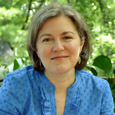
Margaret Renkl is the editor of Chapter 16 and a contributing opinion writer for The New York Times. She lives in Nashville.



